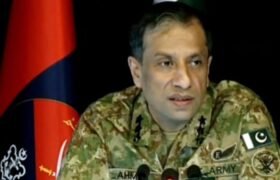Maulana Fazlur Rehman gets official invitation to visit Kabul amid strained bilateral ties: A Positive Step towards Regional Stability
In a recent diplomatic overture, the Afghan Taliban have extended an invitation to Maulana Fazlur Rehman, the leader of Jamiat Ulema-i-Islam-Fazl (JUI-F), marking a potentially significant development in the complex relationship between Afghanistan and Pakistan. As tensions simmer due to escalating cross-border terrorist activities, this move presents an opportunity for dialogue and cooperation, offering a glimmer of hope for regional stability.
The backdrop of this invitation is a strained relationship between the Afghan Taliban government and Pakistan, exacerbated by a surge in terrorist attacks in regions such as Balochistan and Khyber Pakhtunkhwa. Pakistan attributes these attacks to the Tehreek-i-Taliban Pakistan (TTP), accusing the outlawed group of finding sanctuary in Afghanistan. The resulting tensions have prompted Pakistan to consider cross-border air strikes, raising concerns about a potential escalation.
In the face of this complex diplomatic landscape, the Afghan Taliban’s decision to invite Maulana Fazlur Rehman carries implications beyond mere symbolism. It suggests a recognition of the need for dialogue and a potential willingness to address shared concerns, laying the groundwork for constructive engagement.
Maulana Fazlur Rehman’s stature as a prominent religious and political figure in Pakistan positions him as a potential bridge between the two nations. His prior engagements with Afghan Taliban leaders during US-led peace negotiations in Qatar highlight his diplomatic acumen and ability to navigate complex geopolitical terrain. The invitation to Fazlur Rehman indicates a strategic move by the Taliban to leverage his influence and facilitate meaningful discussions.
As the leader of JUI-F, Fazlur Rehman’s connections extend deep into religious and political circles, making him a key figure capable of fostering understanding and cooperation. This diplomatic initiative presents an opportunity to utilize his influence for the greater good of regional stability.
The Afghan Taliban’s assertion of rounding up TTP fighters, though unconfirmed, reflects a strategic effort to address security concerns shared by Pakistan. The recent surge in attacks, culminating in the tragic incident in DI Khan that claimed the lives of 23 soldiers, prompted a robust protest from Pakistan. By purportedly taking action against groups deemed a threat to its neighbor, the Taliban aims to position itself as a responsible actor and a potential ally in combating cross-border terrorism.
This gesture holds the promise of a cooperative approach to security matters, moving away from a blame game toward collaborative efforts to secure the shared border. It remains to be seen whether these actions will translate into tangible steps to eradicate terrorist elements that pose a threat to regional peace.
The timing of Maulana Fazlur Rehman’s visit, scheduled after the nomination process for Pakistan’s February 8 general elections, introduces a political dimension to the unfolding narrative. Beyond immediate security concerns, discussions between Fazlur Rehman and Afghan officials could encompass broader geopolitical considerations, providing an opportunity for political and regional cooperation.
While the visit is not officially associated with the Pakistani government, the potential for Fazlur Rehman’s engagement to influence the political discourse in both countries should not be underestimated. The JUI-F leader’s ability to navigate the complexities of regional politics adds an additional layer of significance to this diplomatic initiative.
In a region where tensions have often overshadowed diplomatic overtures, the invitation extended to Maulana Fazlur Rehman by the Afghan Taliban emerges as a potential ray of hope. As the JUI-F leader prepares for his visit to Kabul, the region watches with cautious optimism, hoping that this initiative leads to substantive dialogue, collaboration, and, ultimately, a more stable and secure future for both Afghanistan and Pakistan. Only time will reveal the true impact of this diplomatic maneuver, but for now, it represents a positive step towards regional stability in a challenging geopolitical landscape.




